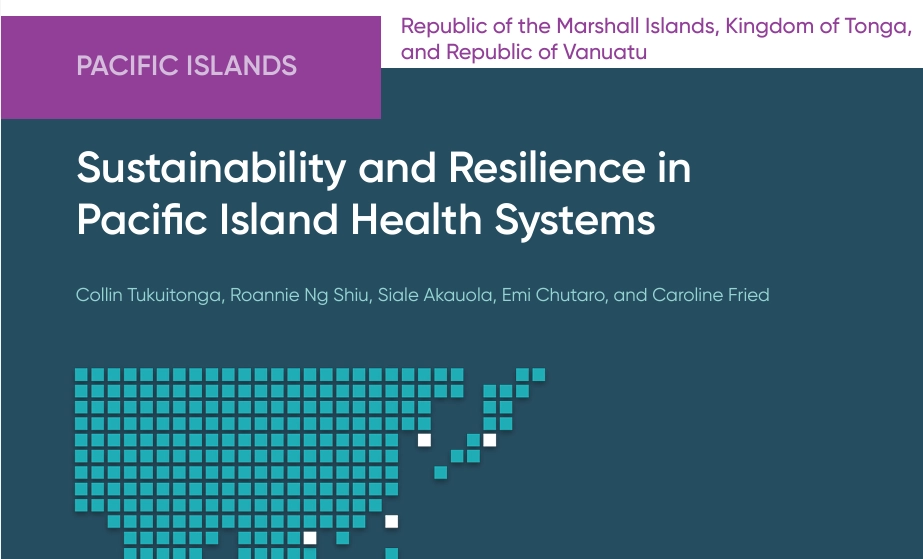The launch of the Pacific Islands Report on Building Resilient Health Systems will see world experts converge in Auckland next week.
Te Poutoko Ora A Kiwa (Centre for Pacific and Global Health) at the University of Auckland and the Centre for Asia-Pacific Resilience and Innovation (CAPRI) will launch Sustainability and Resilience in Pacific Island Health Systems at the Pacific Medical Association headquarters on 28 November.
The report has been authored by:
- Sir Collin Tukuitonga, CAPRI Senior Fellow and the University’s Associate Dean Pacific, Faculty of Health and Medical Sciences (FMHS),
- Dr. Roannie Ng Shiu (FMHS),
- Siale ‘Akau’ola, Minister of Health, Kingdom of Tonga,
- Emi Chutaro, Executive Director, Pacific Island Health Officers Association, Honolulu,
- CAPRI Director of Research Caroline Fried.
Guest speakers will include:
- Former Australian Prime Minister and Chair of the CAPRI International Advisory Council, Malcolm Turnbull,
- Founder and Chair of CAPRI, Professor Syaru Shirley Lin,
- Tonga’s Minister of Health, Dr. Siale ‘Akau’ola,
- Te Poutoko Ora A Kiwa Chair, Sir Ashley Bloomfield,
- Director, Sir Collin Tukuitonga.
The event will be formally opened by the University of Auckland’s Pro Vice-Chancellor Pacific, Professor Jemaima Tiatia-Siau.
The report was motivated by a shared commitment to strengthen health systems and improve population health. It was produced as part of the Partnership for Health System Sustainability and Resilience (PHSSR) and is a collaboration between AstraZeneca, KPMG, the London School of Economics and Political Science (LSE), Royal Philips, the World Economic Forum, CAPRI, and the WHO Foundation.
Sir Collin says it sheds light on the unique developmental challenges faced by Pacific Island Countries and Territories (PICTs):
“With small population groups scattered across vast distances, the Pacific Islands face several unique and interconnected developmental challenges, including unreliable and expensive transport, small and fragile economies, and vulnerability to climate change.”
Despite these obstacles, nations like the Republic of the Marshall Islands, Tonga, and Vanuatu are making strides toward universal health coverage (UHC) by focusing on primary healthcare and public health initiatives.
The report evaluates health systems across seven domains:
- Population health,
- Environmental sustainability,
- Workforce,
- Medicines and technology,
- Service delivery,
- Financing,
- Governance.
Key findings highlight improvements in population health, the urgent need for enhanced healthcare workforce capacity, and significant gaps in health system financing and governance.
To build sustainable and resilient health systems, the report calls for increased national investment in health, coordinated regional policies, and robust global partnerships to address interconnected challenges, particularly in the context of climate change. Sir Collin says this was an area of major concern given Pacific nations were bearing the brunt of the crisis:
“The climate crisis is the most important threat to the lives and livelihoods of people in the Pacific Islands, despite their minimal contribution to global greenhouse gas emissions.”
The report also sought to address the shortage of healthcare workers to meet current and future healthcare needs in the Pacific region.
Sir Collin says the event will be an invaluable opportunity for healthcare professionals, policymakers, and researchers from the region to connect.
Tickets for the 28 November report launch are available HERE.
For more insights and detailed policy recommendations, access the full report HERE.






